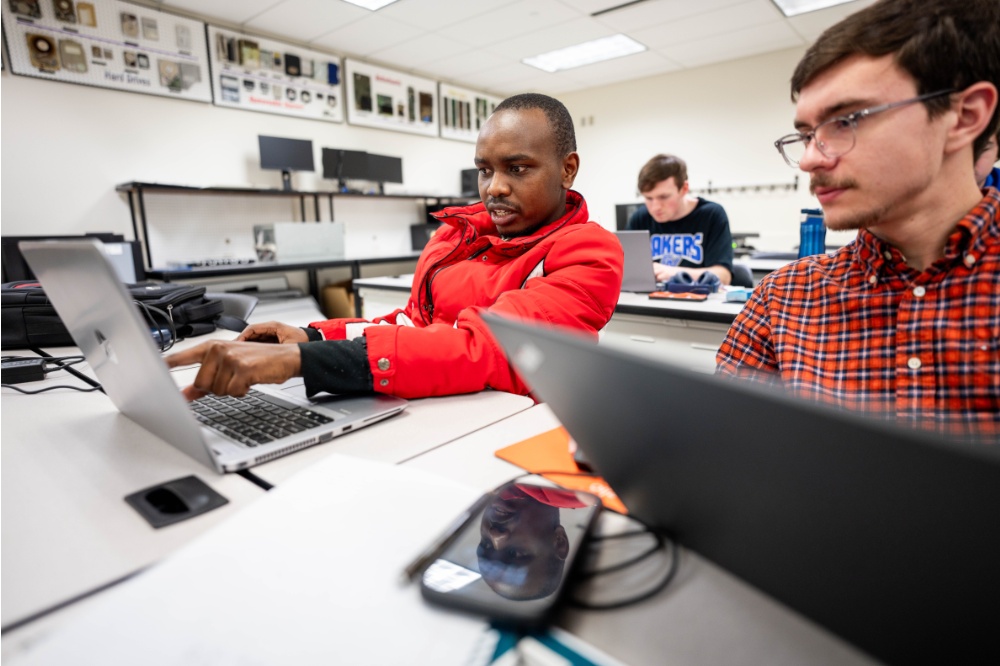News
Faculty Advice to Stay Safe Online
October 04, 2024

There are a lot of ways your information can be compromised online, but there are also many things you can do to protect yourself. For Cybersecurity Awareness Month, The College of Computing collected an array of tips and tricks from our cybersecurity faculty you can implement today to make sure your information stays safe.
Dr. Sara Sutton: Review your device settings and disable any settings you do not need.
Dr. Sutton states many devices you own usually have features you may not need, like voice purchasing or location tracking. Always review what settings your device has and what is automatically enabled. This often includes fitness devices as well.
Dr. Dimitrios Melissourgos: Use Two-Factor-Authentication (2FA) whenever possible.
2FA adds a layer of security to log into your accounts. You can do this easily through text messages or push notifications. In a similar idea, Dr. Vijay Bhuse recommends using a password manager along with 2FA.
Dr. Vijay Bhuse: Turn off Bluetooth in populated public spaces such as airports or cafes.
You can be open to digital attacks through Bluetooth when in public. If you are not actively using any Bluetooth features, turn off your mobile phone or computer’s Bluetooth until you are ready.
Dr. Andrew Kalafut: Don’t accept every social media connection you receive, and remember to back up your devices regularly.
Many people are excited when someone wants to connect with them on social media. But fake accounts are very common, with some even impersonating people you may know. Never click links in bios or messages from wary accounts without caution. Regularly backing up our devices can also help protect against digital attackers or system failures.
Online safety is extremely important and there are many other ways to keep yourself safe outside of the advice described in this article, but these are some fantastic tips from our College of Computing faculty you can use now.
Article written by Maxwell Ritchie.
